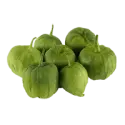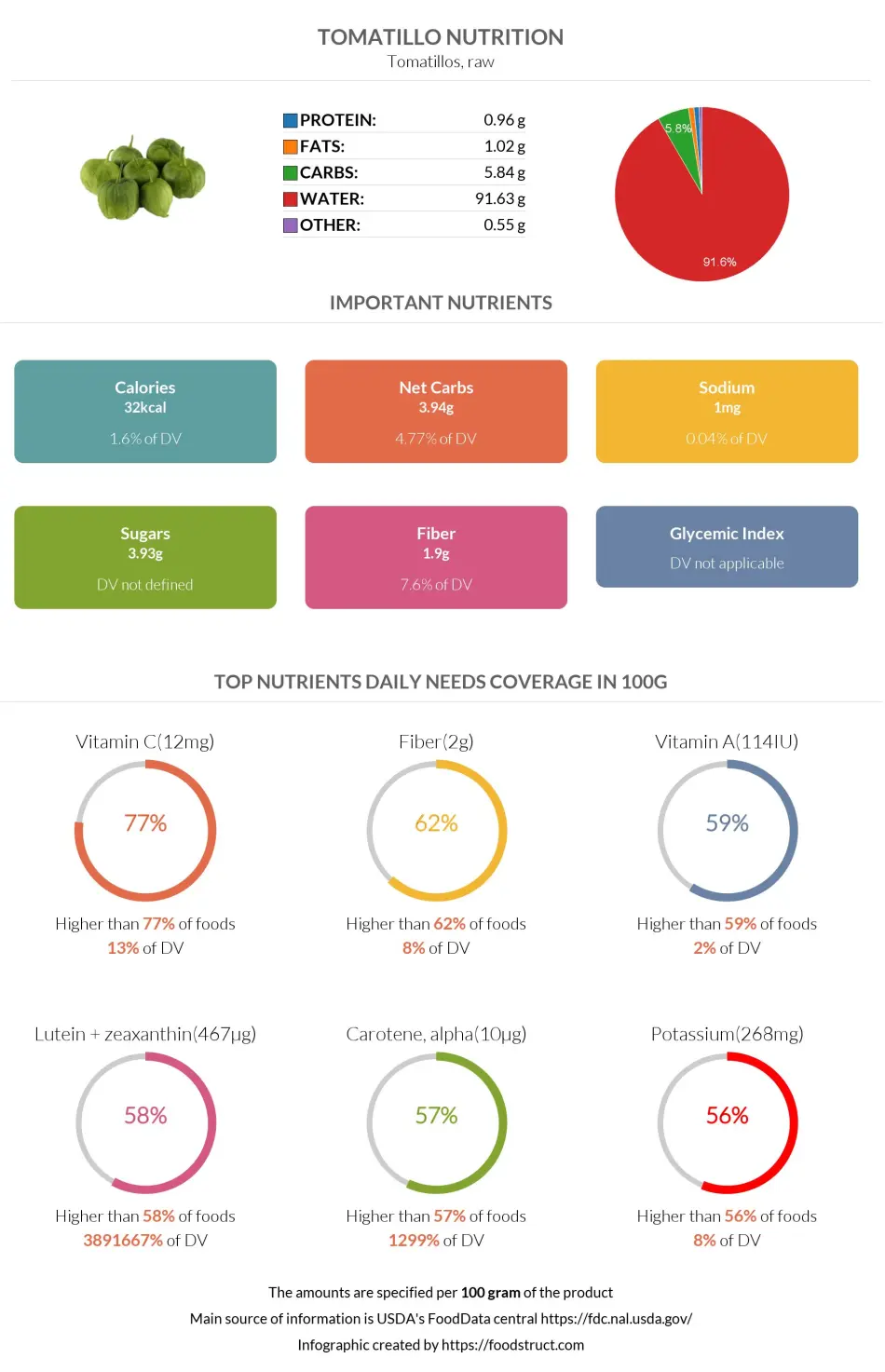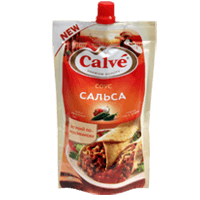Tomatillo: Complete Data of All Nutrients

Summary
Tomatillos are low-calorie fruits, containing 1g of proteins and fats and 5.8g of total carbohydrates, 32.5% of which is dietary fiber. Tomatillos are also rich in health-promoting phytochemicals, such as phenolics, flavonoids, carotenoids, and phytosterols.
Tomatillos fall into the top 23% of foods as a source of vitamin C and cover 13% of the recommended daily value of this vitamin. They are not particularly rich in most minerals and vitamins.
Introduction
Tomatillo (Physalis philadelphica), also known as the Mexican husk tomato, is a fruit originating in Mexico that looks like a green, unripe tomato. Tomatillos share the Nightshade (Solanaceae) family with tomatoes, potatoes, eggplants, and chili and bell peppers.
Tomatillos are commonly used to prepare the Salsa verde sauce, but they can also be consumed raw.
Nutrition
In this article, we will be discussing the nutritional value of 100g of raw tomatillos.
Tomatillos are not particularly dense in nutrients. They consist of around 90% of water and 10% of nutrients.
The serving size of tomatillos is 0.5 cups, equalling 66g. Tomatillos are usually served chopped or diced.
Macronutrients chart
Calories
Tomatillos are low-calorie fruits. A 100g serving of tomatillos provides only 32 calories.
This amount is equal to 2% of daily calorie requirements.
The average serving of tomatillos (one cup) provides 21 calories.
Carbohydrates
Carbs are the main macronutrients in tomatillos. A 100g of tomatillos contain 5.8g of carbohydrates. Of these carbs, 32.5% (1.9g) is dietary fiber and 67.5% (3.93g) are net carbs (digestible sugars).
One serving or one cup of tomatillos contains 3.85g of total carbs, 1.25g of dietary fiber, and 2.59g of sugars.
Fiber content ratio for Tomatillo
Protein & Fat
Tomatillos are very low in proteins and fats, containing only 1g of each per 100g serving of the fruit.
Just like all fruits, tomatillos do not contain cholesterol or trans fats.
Vitamins
Tomatillos are not particularly rich in most vitamins, either.
Tomatillos fall in the top 23% of foods as a source of vitamin C. 100g of tomatillos cover 13% of the recommended daily value of this vitamin.
The same amount of tomatillos covers the recommended daily value of vitamin B3 by 12%.
As for the rest of the vitamins, tomatillos contain low amounts of vitamins B2, B3, B5, B6, and B9 (folate) and fat-soluble vitamins A, E, and K.
Vitamin coverage chart
Minerals
Tomatillos contain some amounts of all minerals, but they are not rich in any specific mineral.
Tomatillos have comparably higher levels of copper, iron, potassium, phosphorus, manganese, and magnesium and lower levels of calcium, selenium, zinc, sodium, and choline.
Mineral coverage chart
Phytochemicals
Phytochemicals, phytonutrients, or antioxidants, are active compounds derived from fruits, vegetables, grains, and nuts. Regular consumption of phytochemical-rich foods is associated with a reduced risk of chronic diseases and cancer.
Tomatillos are studied to contain carotenoids, flavonoids, phenolic compounds, phytosterols, sucrose esters, withanolides, and physalins.
The above-mentioned phytochemicals, as well as several vitamins and minerals, are responsible for the tomatillo fruit's antioxidant, antimicrobial, anti-cancer, and anti-inflammatory activities (1).
Glycemic Index
The glycemic index of tomatillo fruits is yet to be calculated. However, considering the high dietary fiber and low sugar content of tomatillo fruits, they are likely to be low-glycemic index foods.
Acidity
According to a study, tomatillos have a pH value below 4.1, making them acidic (2).
Another way to look at a food's acidity is by calculating its PRAL value. The PRAL or potential renal acid load value shows how much acid or base is produced in the organism after consuming a certain food.
Interestingly, tomatillos have a negative PRAL value of -4.3, making them alkaline-forming.
Comparison to Similar Foods
Compared to tomatoes, tomatillos are 2g higher in total carbs and 0.7g higher in dietary fiber; tomatillos are also richer in most minerals and B-complex vitamins. On the other hand, tomatoes are 7 times richer in vitamin A.
Compared to gooseberries, tomatillos have less total carbs and are richer in most minerals. Gooseberries are 2.4g richer in dietary fiber and 2 times richer in vitamins A and C.
Compared to groundcherries, tomatillos are significantly lower in total carbs and slightly lower in calories, whereas groundcherries are slightly richer in proteins and 3.5 times richer in vitamin A.
Top nutrition facts for Tomatillo

| Calories ⓘ Calories for selected serving | 32 kcal |
| Net Carbs ⓘ Net Carbs = Total Carbohydrates – Fiber – Sugar Alcohols | 4 grams |
| Default serving size ⓘ Serving sizes are mostly taken from FDA's Reference Amounts Customarily Consumed (RACCs) | 1 medium (34 grams) |
| Acidity (Based on PRAL) ⓘ PRAL (Potential renal acid load) is calculated using a formula. On the PRAL scale the higher the positive value, the more is the acidifying effect on the body. The lower the negative value, the higher the alkalinity of the food. 0 is neutral. | -4.3 (alkaline) |
Tomatillo calories (kcal)
| Calories for different serving sizes of tomatillo | Calories | Weight |
|---|---|---|
| Calories in 100 grams | 32 | |
| Calories in 1 medium | 11 | 34 g |
| Calories in 0.5 cup, chopped or diced | 21 | 66 g |
Mineral chart - relative view
Vitamin chart - relative view
Fat type information
All nutrients for Tomatillo per 100g
| Nutrient | Value | DV% | In TOP % of foods | Comparison |
| Vitamin A | 6µg | 1% | 56% | |
| Calories | 32kcal | 2% | 93% |
1.5 times less than Orange
|
| Protein | 0.96g | 2% | 85% |
2.9 times less than Broccoli
|
| Fats | 1g | 2% | 74% |
32.7 times less than Cheese
|
| Vitamin C | 12mg | 13% | 23% |
4.5 times less than Lemon
|
| Net carbs | 3.9g | N/A | 60% |
13.7 times less than Chocolate
|
| Carbs | 5.8g | 2% | 58% |
4.8 times less than Rice
|
| Cholesterol | 0mg | 0% | 100% |
N/A
|
| Vitamin D | 0µg | 0% | 100% |
N/A
|
| Magnesium | 20mg | 5% | 61% |
7 times less than Almonds
|
| Calcium | 7mg | 1% | 85% |
17.9 times less than Milk
|
| Potassium | 268mg | 8% | 44% |
1.8 times more than Cucumber
|
| Iron | 0.62mg | 8% | 73% |
4.2 times less than Beef broiled
|
| Sugar | 3.9g | N/A | 51% |
2.3 times less than Coca-Cola
|
| Fiber | 1.9g | 8% | 38% |
1.3 times less than Orange
|
| Copper | 0.08mg | 9% | 64% |
1.8 times less than Shiitake
|
| Zinc | 0.22mg | 2% | 83% |
28.7 times less than Beef broiled
|
| Phosphorus | 39mg | 6% | 81% |
4.7 times less than Chicken meat
|
| Sodium | 1mg | 0% | 98% |
490 times less than White bread
|
| Vitamin E | 0.38mg | 3% | 63% |
3.8 times less than Kiwi
|
| Manganese | 153mg | 6652% | 56% | |
| Selenium | 0.5µg | 1% | 89% | |
| Vitamin B1 | 0.04mg | 4% | 75% |
6 times less than Pea raw
|
| Vitamin B2 | 0.04mg | 3% | 85% |
3.7 times less than Avocado
|
| Vitamin B3 | 1.9mg | 12% | 59% |
5.2 times less than Turkey meat
|
| Vitamin B5 | 0.15mg | 3% | 85% |
7.5 times less than Sunflower seeds
|
| Vitamin B6 | 0.06mg | 4% | 76% |
2.1 times less than Oats
|
| Vitamin B12 | 0µg | 0% | 100% |
N/A
|
| Vitamin K | 10µg | 8% | 50% |
10.1 times less than Broccoli
|
| Trans fat | 0g | N/A | 100% |
N/A
|
| Folate | 7µg | 2% | 72% |
8.7 times less than Brussels sprouts
|
| Choline | 7.6mg | 1% | 89% | |
| Saturated fat | 0.14g | 1% | 79% |
42.4 times less than Beef broiled
|
| Monounsaturated fat | 0.16g | N/A | 79% |
63.2 times less than Avocado
|
| Polyunsaturated fat | 0.42g | N/A | 65% |
113.1 times less than Walnut
|
| Caffeine | 0mg | 0% | 100% | |
| Omega-3 - EPA | 0g | N/A | 100% |
N/A
|
| Omega-3 - DHA | 0g | N/A | 100% |
N/A
|
| Omega-3 - DPA | 0g | N/A | 100% |
N/A
|
Check out similar food or compare with current
NUTRITION FACTS LABEL
Serving Size ______________
Health checks
Tomatillo nutrition infographic

References
All the values for which the sources are not specified explicitly are taken from FDA’s Food Central. The exact link to the food presented on this page can be found below.



